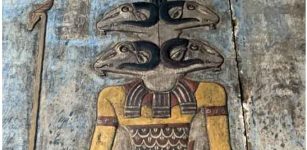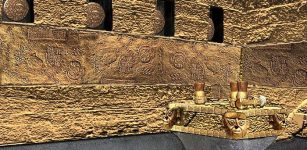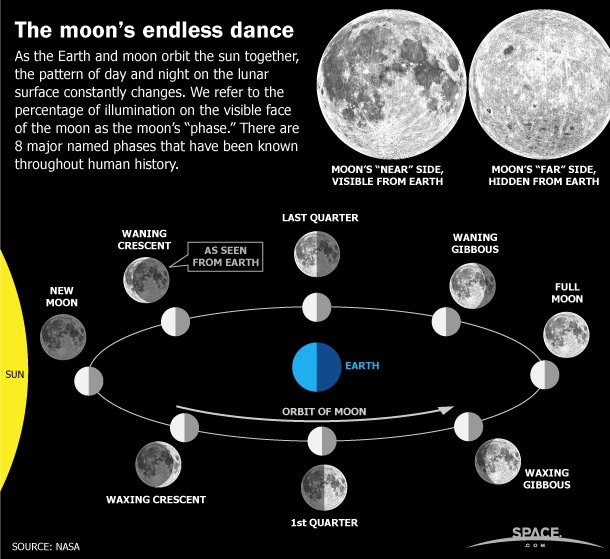Our 7-Day Week Can Be Traced To Babylonians Who Started Using It 4,000 Years Ago
Ellen Lloyd - AncientPages.com - Why has our week 7 days? The length of our day, month, and the year is based on astronomical observations. However, why we have a seven-day week is a little more complicated as there is no proper scientific explanation behind the number of days.
The history of the seven-day week can be traced to ancient civilizations. Most historians agree the seven-day week dates back to Babylonians who started using it about 4,000 years ago.
The number 7 was sacred to the Babylonians. It was associated with the seven heavenly bodies; the Sun, Moon, Mars, Mercury, Jupiter, Venus, and Saturn.
This could also be the reason why marking rituals every seventh-day became important in ancient Babylon.
Ancient Babylonian astronomers
Interestingly, a seven-day week based on these same celestial bodies was adopted as far away as Japan and ancient China, but ancient Egyptians did not approve of it and had 10 days in their week.
The Babylonians were excellent ancient astronomers and they marked time with lunar months and each lunar month was made up of several different cycles.
See also:
Gnomon: Ancient Time Measuring Instrument Used By Babylonians, Egyptians And Chinese
Minutes Did Not Exist During The Middle Ages
More Fascinating Ancient History Facts
Many scientists think this is the reason why the Babylonians started using a seven-day week, but there is no solid evidence confirming this is what happened.
The Jews also used a seven-day week and it is possible the Hebrew seven-day week is based on the Babylonian tradition, but unlike other cultures, the Hebrews did not use planetary names. They preferred to designate the days by number. The only exception is Saturday, Yom Shabbat which means Sabbath and this marked the day of rest and the last day of the week.
The Moon's Phases: Lunar Cycle - Credit: Space.com
Ancient Romans and Etruscans on the other hand had an eight-day week.
The Christians received the seven-day week from the Jews.
When the Roman emperor Constantine made Christianity the state religion early in the 4th Century CE the seven day week was officially associated with the Julian Calendar and later when it was replaced by the Gregorian Calendar in the 16th Century CE, the 7-day week was still in use.
So, as you can see, the history of the seven-day week is very ancient, but the seven-day weekly cycle has remained unbroken in Christendom, and hence in Western history, for almost two millennia, despite changes to the Coptic, Julian, and Gregorian calendars.
Written by: Ellen Lloyd - AncientPages.com
Copyright © AncientPages.com All rights reserved. This material may not be published, broadcast, rewritten or redistributed in whole or part without the express written permission of AncientPages.com
Expand for referencesMore From Ancient Pages
-
 A Baffling 100-Year-Old ‘Alien’ Puzzle – Shocking Cosmic Secrets
Featured Stories | Sep 20, 2018
A Baffling 100-Year-Old ‘Alien’ Puzzle – Shocking Cosmic Secrets
Featured Stories | Sep 20, 2018 -
 Ancient Greeks Had Knowledge Of Advanced Lifting Technology Long Before Modern Cranes Were Invented
Ancient Technology | Aug 29, 2019
Ancient Greeks Had Knowledge Of Advanced Lifting Technology Long Before Modern Cranes Were Invented
Ancient Technology | Aug 29, 2019 -
 The ‘Chinese Pyramids’ And The Pole Star
Archaeology | Nov 30, 2018
The ‘Chinese Pyramids’ And The Pole Star
Archaeology | Nov 30, 2018 -
 Reliefs And Engravings Of Celestial Bodies And A Zodiac On Walls And Ceilings Of Luxor’s Esna Temple
Archaeology | Oct 5, 2023
Reliefs And Engravings Of Celestial Bodies And A Zodiac On Walls And Ceilings Of Luxor’s Esna Temple
Archaeology | Oct 5, 2023 -
 LIDAR Discovers Two Remarkably Large Sites In The Amazon And Evidence Of Early Urbanism
Archaeology | May 25, 2022
LIDAR Discovers Two Remarkably Large Sites In The Amazon And Evidence Of Early Urbanism
Archaeology | May 25, 2022 -
 Coricancha – Stunning Golden Garden And Lost Treasures Of The Inca
Featured Stories | Aug 20, 2021
Coricancha – Stunning Golden Garden And Lost Treasures Of The Inca
Featured Stories | Aug 20, 2021 -
 Mystery Of Great Wall Of California: An Ancient Unsolved Enigma
Civilizations | Sep 11, 2018
Mystery Of Great Wall Of California: An Ancient Unsolved Enigma
Civilizations | Sep 11, 2018 -
 Large Ancient Egyptian Astronomical Observatory In The Buto Temple Discovered In Kafr El-Sheikh, Nile Delta
Archaeology | Oct 9, 2024
Large Ancient Egyptian Astronomical Observatory In The Buto Temple Discovered In Kafr El-Sheikh, Nile Delta
Archaeology | Oct 9, 2024 -
 Weapons Left By Barbarian Tribes Discovered In Polish Forest
Archaeology | Jan 26, 2024
Weapons Left By Barbarian Tribes Discovered In Polish Forest
Archaeology | Jan 26, 2024 -
 ‘Yunatsite’ And Thought-Provoking Theory That Balkan Peninsula And Not Mesopotamia Was The Cradle Of Civilization
Civilizations | Jan 14, 2023
‘Yunatsite’ And Thought-Provoking Theory That Balkan Peninsula And Not Mesopotamia Was The Cradle Of Civilization
Civilizations | Jan 14, 2023 -
 Mystery Of The East Asian Lineages In Europe 45,000 Years Ago Solved – Population Hub Out Of Africa Holds The Clues
Archaeology | Apr 7, 2022
Mystery Of The East Asian Lineages In Europe 45,000 Years Ago Solved – Population Hub Out Of Africa Holds The Clues
Archaeology | Apr 7, 2022 -
 Ancient City Of Gordium, Gordian Knot And Skeleton In Tumulus Of King Midas
Civilizations | Sep 20, 2018
Ancient City Of Gordium, Gordian Knot And Skeleton In Tumulus Of King Midas
Civilizations | Sep 20, 2018 -
 Epona – One Of The Oldest And Widely Known Celtic Deities
Celtic Mythology | Feb 26, 2018
Epona – One Of The Oldest And Widely Known Celtic Deities
Celtic Mythology | Feb 26, 2018 -
 Is North America’s Oldest House In Ohio A 12,250-Year-Old Clovis Dwelling? Archaeologists Re-Investigate The Paleo Crossing Site
Archaeology | Apr 28, 2022
Is North America’s Oldest House In Ohio A 12,250-Year-Old Clovis Dwelling? Archaeologists Re-Investigate The Paleo Crossing Site
Archaeology | Apr 28, 2022 -
 On this day in history: The Battle of the Frigidus – Sep 5, 394 AD
News | Sep 5, 2015
On this day in history: The Battle of the Frigidus – Sep 5, 394 AD
News | Sep 5, 2015 -
 Mystery Of The Black Irish People: Who Were They?
Civilizations | May 24, 2016
Mystery Of The Black Irish People: Who Were They?
Civilizations | May 24, 2016 -
 Ancient Cotton Fibers Dating Back 7,000 Years Discovered In NE Israel
Archaeology | Dec 19, 2022
Ancient Cotton Fibers Dating Back 7,000 Years Discovered In NE Israel
Archaeology | Dec 19, 2022 -
 Human Skeleton Dated To Parthian Era Unearthed At Tepe Ashraf In Iran’s City Of Isfahan
Archaeology | Jul 25, 2020
Human Skeleton Dated To Parthian Era Unearthed At Tepe Ashraf In Iran’s City Of Isfahan
Archaeology | Jul 25, 2020 -
 Mysterious Gold-Colored Chariot Washes Ashore In India – But Where Did It Come From?
News | May 12, 2022
Mysterious Gold-Colored Chariot Washes Ashore In India – But Where Did It Come From?
News | May 12, 2022 -
 Mystery Of The Sandby Borg Massacre Deepens – Unexplained Disappearance Of Women
Featured Stories | Dec 5, 2020
Mystery Of The Sandby Borg Massacre Deepens – Unexplained Disappearance Of Women
Featured Stories | Dec 5, 2020



